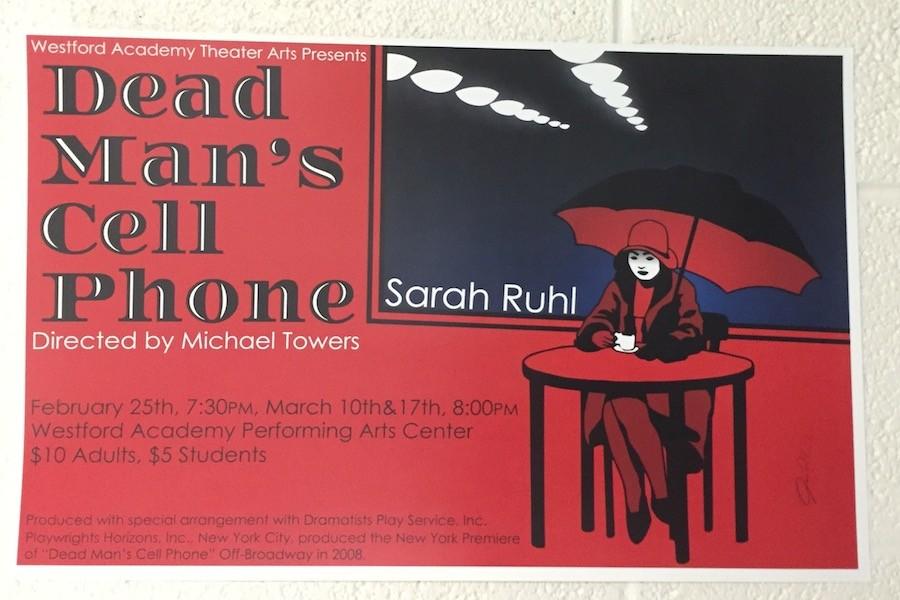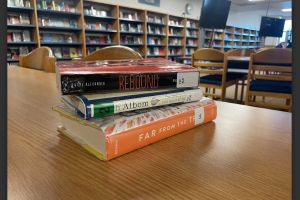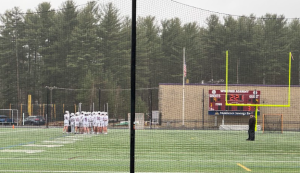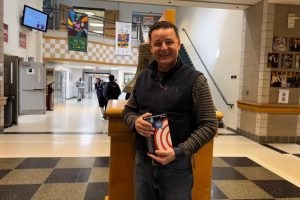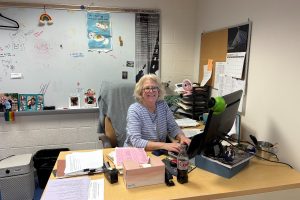Dead Man’s Cell Phone calls WA Thursday
February 25, 2016
On Thursday, February 25th, Westford Academy Theater Arts (WATA) will present “Dead Man’s Cell Phone”. This play will also be shown in the Massachusetts Educational Theater Guild (METG) Festival, a competition for high school theater productions.
WATA will be presenting “Dead Man’s Cell Phone” on Thursday night at 7:30pm and again on March 10th at 8pm as well as March 17th at 8pm. Adult tickets are $10.00 and student tickets are $5.00.
Written by Sarah Ruhl, the play is a comedy about a girl named Jean, played by senior Maia Cataldo, who is sitting in a cafe, when a cell phone rings. When she goes to pick it up, it turns out that the man who owns the phone is dead. Throughout the story, Jean continues to answer this dead man’s cell phone. Eventually, she is introduced to the life of this dead man, Gordon, who is played by Anthony Giovino.
According to senior actor Claire Shea, one of the reasons this show was chosen is because it is different than shows that WATA has done in its recent history.
“We did it for the challenge and to grow in a different way. We are so used to doing a drama, it’s really good to do something else, to learn,” said Shea.
This play is not a musical. However, there will be a musical score, which was composed by a handful of students in WATA.
As for the competition aspect of the show, it will start off in the preliminary rounds. In fact, WA will be one of the schools that host these rounds.
“It’s kind of complicated, but it’s also similar to brackets that you have in sports. So [schools] sign up, […] and there are preliminaries, semi-finals, and finals,” said Shea.
In addition, according to Shea, each school that signs up for the competition can attend the preliminary rounds. However, if their production is over forty minutes, they are disqualified. Also, after the beginning rounds, three winners are selected. After the rest of the competition rounds there will be three winners out of about 114 schools.
On a personal level, Shea likes this play because of the creativity aspect.
“I like how much artistic liberty we can take with it […], this show is really thought-driven. I like how spontaneous it all is, how you can do a comedy and you can be this huge outlandish character that you usually don’t get to do,” said Shea. “You can make people laugh and you can hear that response from the audience.”
Finally, Shea believes that this production can relate to people and society today.
“It’s a really informative play about how technology is kind of ruining those connections. We still connect with people, but it’s in a weird way. Cell phones [can] get in the way of face to face conversations,” said Shea.

